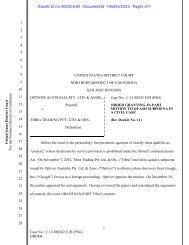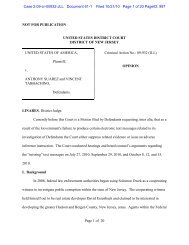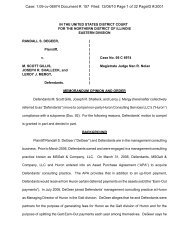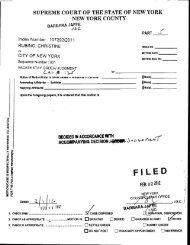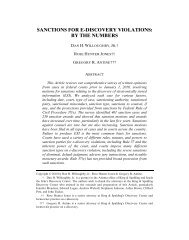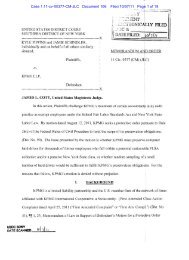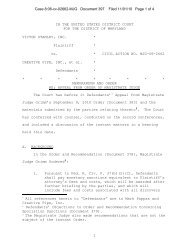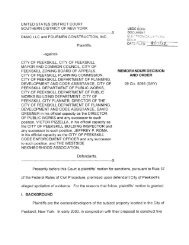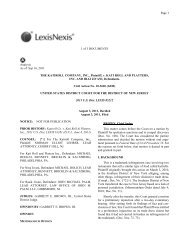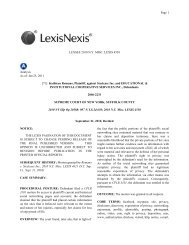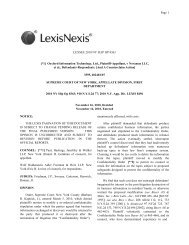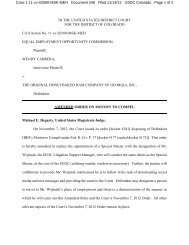Rimkus Consulting Group Inc. v. Cammarata - Ballard Spahr LLP
Rimkus Consulting Group Inc. v. Cammarata - Ballard Spahr LLP
Rimkus Consulting Group Inc. v. Cammarata - Ballard Spahr LLP
Create successful ePaper yourself
Turn your PDF publications into a flip-book with our unique Google optimized e-Paper software.
Case 4:07-cv-00405 Document 450 Filed in TXSD on 02/19/10 Page 11 of 139<br />
FED. R. CIV. P. 37(b)(2)(A). In addition, a court has statutory authority to impose costs,<br />
expenses, and attorneys’ fees on “any attorney . . . who so multiplies the proceedings in any<br />
case unreasonably and vexatiously.” 28 U.S.C. § 1927.<br />
Rule 37(e) applies to electronically stored information lost through “routine good-faith<br />
operation” of an electronic information system rather than through intentional acts intended<br />
to make evidence unavailable in litigation. Rule 37(e) states: “Absent exceptional<br />
circumstances, a court may not impose sanctions under these rules on a party for failing to<br />
provide electronically stored information lost as a result of the routine, good-faith operation<br />
of an electronic information system.” FED. R. CIV. P. 37(e).<br />
The alleged spoliation and proposed sanctions in this case implicate the court’s<br />
inherent authority, including for spoliation occurring before this case was filed or before<br />
discovery orders were entered and Rule 37, for failures to comply with discovery orders.<br />
B. When Deletion Can Become Spoliation<br />
Spoliation is the destruction or the significant and meaningful alteration of evidence.<br />
See generally THE SEDONA CONFERENCE, THE SEDONA CONFERENCE GLOSSARY: E-<br />
DISCOVERY & DIGITAL INFORMATION MANAGEMENT (SECOND EDITION) 48 (2007)<br />
(“Spoliation is the destruction of records or properties, such as metadata, that may be relevant<br />
to ongoing or anticipated litigation, government investigation or audit.”). Electronically<br />
stored information is routinely deleted or altered and affirmative steps are often required to<br />
preserve it. Such deletions, alterations, and losses cannot be spoliation unless there is a duty<br />
11



